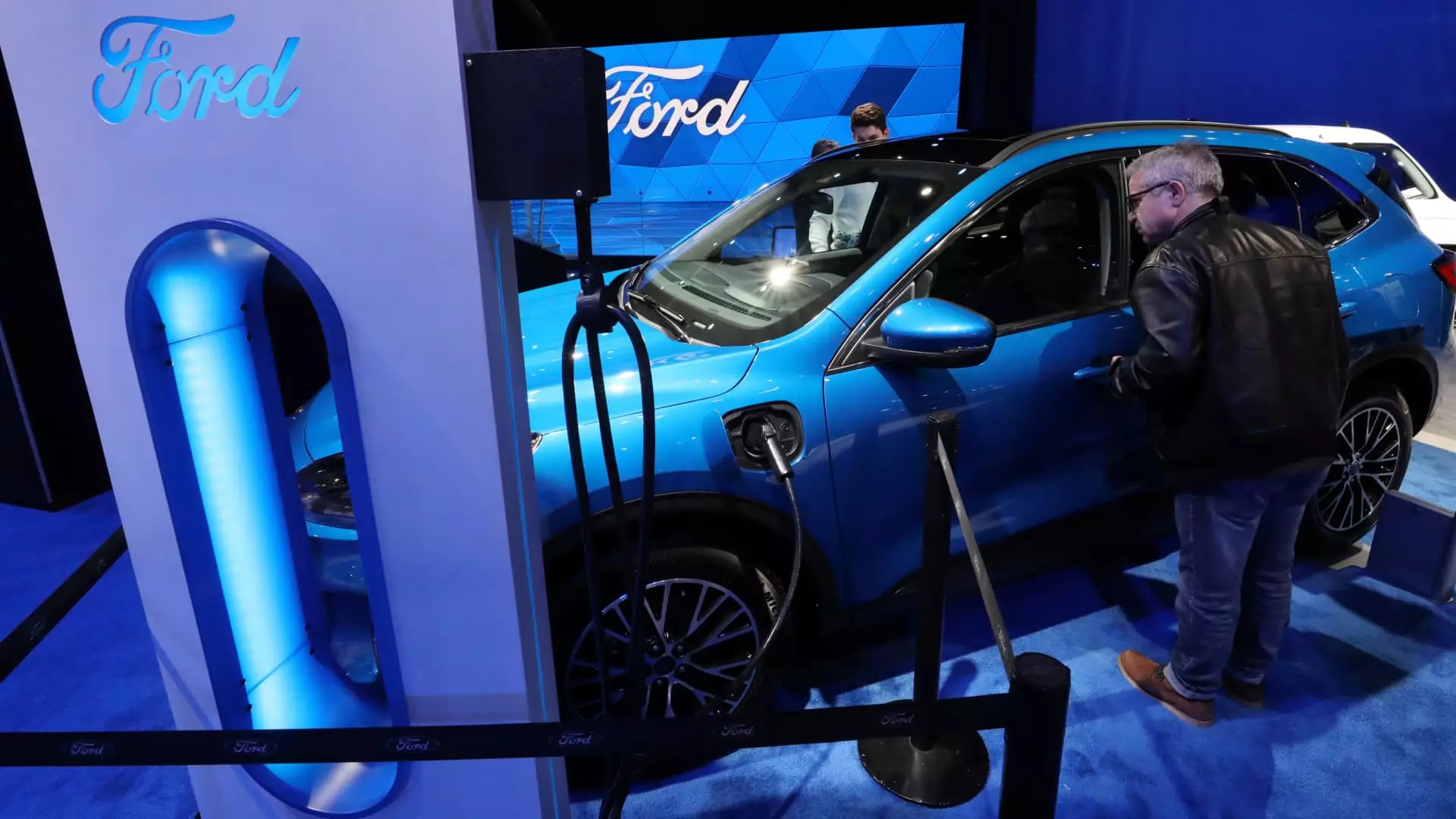Ford Motor Company has decided to delay the production of a new all-electric large SUV and pickup truck in order to focus on offering hybrid options across its entire North American lineup by 2030. The three-row SUV at a plant in Canada has been pushed back to 2027 from the original plan of 2025, while the next-generation pickup has been postponed from late 2025 to 2026. This shift in production timelines is a strategic move by Ford to adapt to the changing market conditions and align with the evolving consumer preferences for electric and hybrid vehicles.
The decision to delay production comes as a response to the slower-than-expected adoption of electric vehicles in the automotive industry. Despite the high initial production costs, Ford remains committed to investing in EVs and scaling a profitable EV business. The competition in the EV market is fierce, with brands like Tesla and Hyundai outselling Ford in EV sales. The company recognizes the need to bring to market the right gas, hybrid, and fully electric vehicles at the right time to remain competitive and meet consumer demand.
Ford’s Oakville Assembly Plant in Ontario, Canada, was set to undergo a $1.3 billion investment to transition into a new electric vehicle hub. However, the timeline for this transformation has been extended to allow for the consumer market for three-row EVs to further develop and to take advantage of emerging battery technology. Ford is also focusing its EV efforts on new plants like the “BlueOval City” campus in Tennessee, rather than transitioning current facilities producing engine-powered vehicles to all-electric models.
Ford CEO Jim Farley emphasized that the company’s breakthrough, next-generation EVs will be new from the ground up and fully software-enabled. These vehicles will offer ever-improving digital experiences and a multitude of potential services to enhance the overall customer experience. The delay in production will allow Ford to leverage advancements in battery technology to provide customers with increased durability and better value in their electric vehicles.
Ford reported an 86% increase in electric vehicle sales in the first quarter of 2024 compared to the previous year. Hybrid sales also rose by 42% year over year, while sales of traditional vehicles with internal combustion engines saw a modest increase of 2.6%. Despite the growth in EV and hybrid sales, Ford’s “Model e” electric vehicle business incurred significant losses, totaling $4.7 billion in 2023. The company expects this trend to continue, projecting a loss between $5 billion and $5.5 billion for the unit in 2024.
Ford’s decision to delay the production of its all-electric SUV and pickup truck reflects the company’s strategic shift towards offering hybrid options across its lineup. By focusing on new EV plants and next-generation electric vehicles, Ford aims to remain competitive in the rapidly evolving automotive market and meet the changing demands of consumers for sustainable and efficient transportation options.

